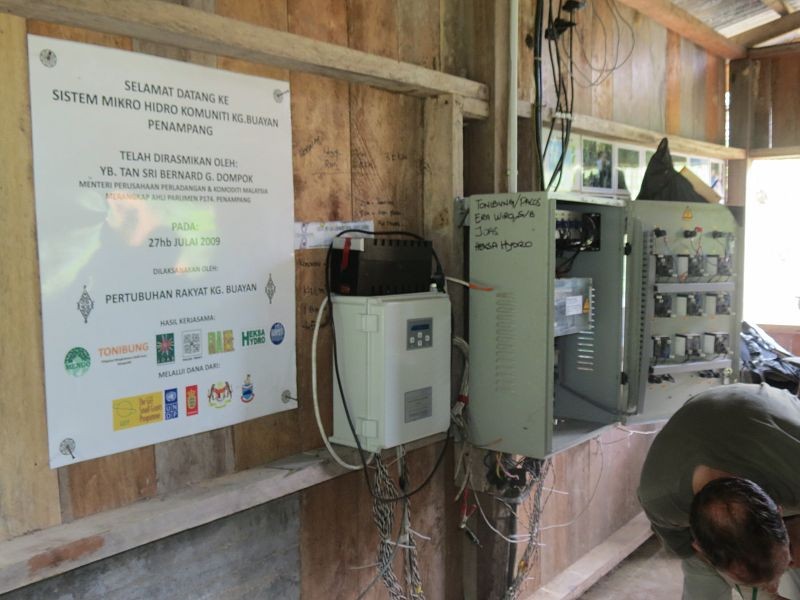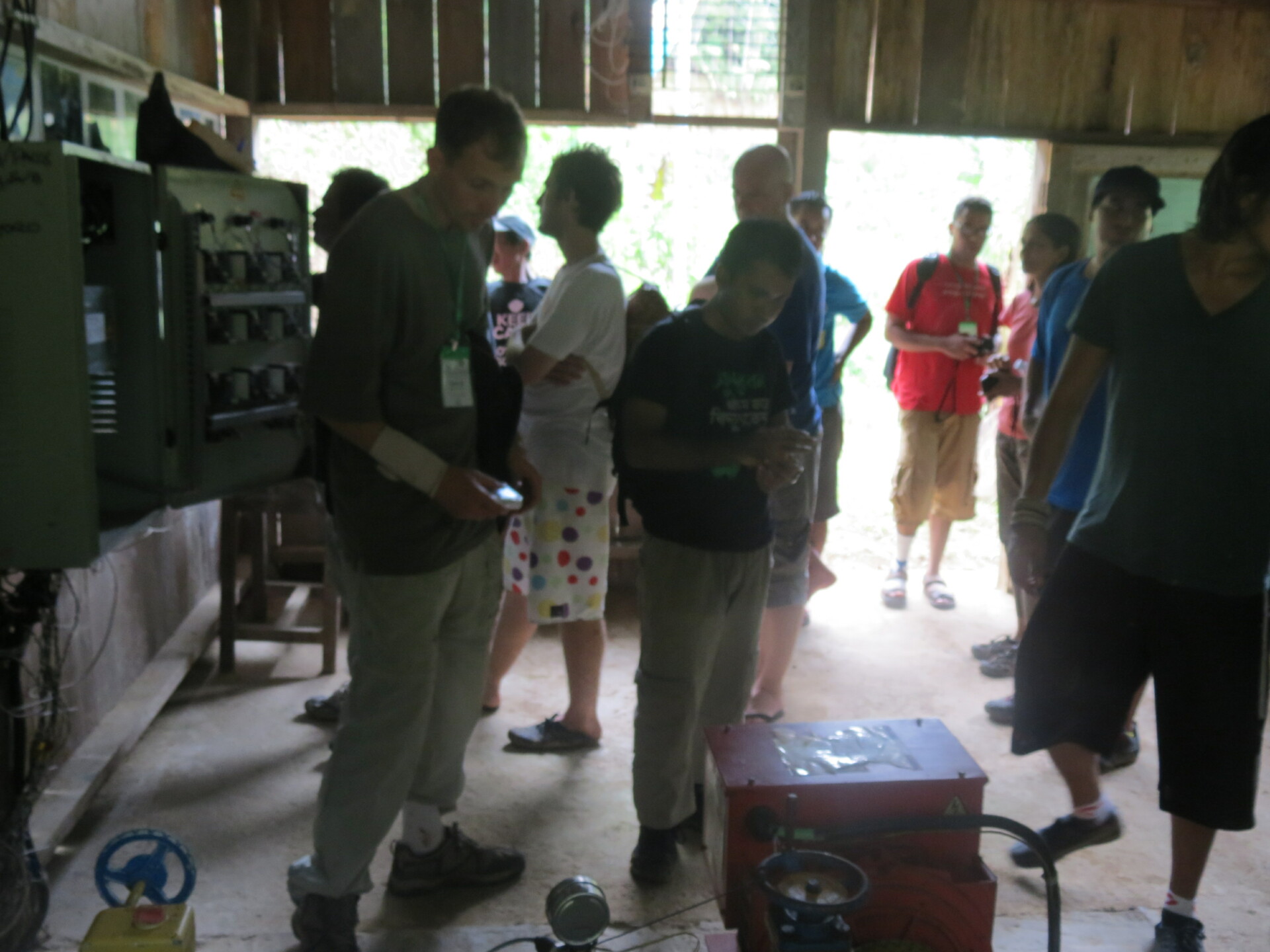The applicants propose a multi-lateral, output-based technical development knowledge exchange for a technical component, the load controller
Exchange and Objective
Load controllers are widely used in micro-hydropower systems as they ensure the smooth operation of the plant with minimal user intervention. They play a particularly important role in plants where the quality of electricity supply is important: where it is not simply a matter of “keeping the lights on” but of powering sophisticated electrical loads, for example in agro-processing equipment.
Load controllers are also useful where site overloading is a common problem. Malfunction of a load controller can cause turbines to overspeed and put the mechanical components at risk (namely the shaft and bearings, among others).

The motivation for this exchange activity originated within the Hydro Empowerment network, which acts as a platform for knowledge exchange for practitioners in micro-hydropower in South and Southeast Asia. At a meeting of the network, members expressed the wish to jointly develop an open source, low cost load controller with minimal maintenance needs which could be used in small-scale hydro projects. This open source load controller would be easy to manufacture, use and repair within the context of the remote and rural environments that HPNET practitioners usually work. Locally available components, as well as the ability for repairs and servicing to be carried out locally, would be integrated into the design.
The network members agreed that a first step in this direction would be to conduct an open knowledge sharing process and develop a database to help understand the variety of load controllers and manufacturers available in the region.
The goal of this exchange was, therefore, to provide a basis for the development of an open source controller at a later stage. Moreover, the enhanced knowledge would address a challenge that micro-hydro developers face when selecting a suitable load controller to match the requirements of their projects - namely, the lack of reliable information on the variety of types of load controllers and suppliers available on the market. Lastly, the database would enable developers to negotiate with suppliers and help in the training of technicians.
Participants & Target Group
Janathakshan, a member of HPNET, coordinated the exchange. It conducted the survey and interviews with the load controller manufacturers and users and was entrusted with the task of developing a suitable database and analysis report to share the information produced. A number of members from the network with extensive knowledge on load controller design and manufacture actively supported the process.

Activities
The exchange activity included:- Training on load controller design for the exchange coordinator at the Bandung Hydro Association (AHB) in Indonesia, which also provided a basis for discussion on potential training facilities available for network members at AHB.
- Online survey and interviews with nine practitioners (all members of HPNET).
- Desk research of online resources from fourteen load controller manufacturers and suppliers, and interviews with representatives of six organisations in the field of load controller production from three different countries.
Results & Impact
In general, the response rate to the survey was satisfactory; there was no reluctance from practitioners or manufacturers to share information. The database and analysed results are available in the form of a report and on the network’s website.
The results provide a solid knowledge base about the types of controllers available in the South and Southeast Asian markets, including their features, advantages and disadvantages, suppliers, existing users, cost effectiveness and maintenance requirements. The results also include information on performance issues as perceived by HPNET members, specific challenges faced and desired improvements with regards to the different load controllers.
Many desired features were identified but, in short, the ideal controller had to be highly modular, and reliable and easy to install, use and repair locally. Most of the survey respondents stated that the lack of availability of replacement components was a problem and that local electrical technicians do not have the ability to repair faulty controllers.
Lessons learned
This exchange activity enabled micro- hydropower developers to navigate the market in the search for a suitable load controller, prioritise their wish list for an improved design and evaluate the prospects for developing an open source design.
The analysis shed light on both sides of an argument: results indicated that many manufacturers have gone some way to meeting the needs of rural micro-hydro plants. Nevertheless, practitioners perceive that the available technology is not yet appropriate and they continue to struggle with the load controllers that they are currently using.
The network sees the open source load control design as a practical solution to fill this gap and has mapped out the future pathway. One key argument in favour of an open-source design is that it would allow the local technicians to be involved in the assembly of the load controller and, consequently, increase their maintenance skills and self-sufficiency. Two open source designs exist to date. Once one of these designs is selected as a template, the results of this survey will help to refine and tailor the design to the specific needs identified by the practitioners who participated in this survey.
-> Download the detailed summary here!
Projects with same technology
Exchange: Strengthening Open-Source ELC Development in Southeast Asia
(1) to continue to build and strengthen local capacities around ELC installation and development; and (2) to further improve the open-source ELC design
Pico Hydro development and scaling up, to light up the lives of rural poor in remote and inaccessible areas
To provide reliable and renewable electricity to 75 remote off-grid households, using 35 pico hydo units
Projects in same country
Improving Livelihoods Of Fishermen In Sri Lanka By Introducing LED And CF Lamps For Night Fishing
To improve the livelihoods of fisherman at lakes in South-West Sri Lanka by replacing kerosene lamps with LED and CF lamps for night fishing
Exchange: Technology Transfer on Pico-Hydro in South and Southeast Asia
To transfer Sri Lankan pico-hydro turbine manufacturing skills to micro-hydro practitioner organisations in Bangladesh, the Philippines, Myanmar and Malaysia
